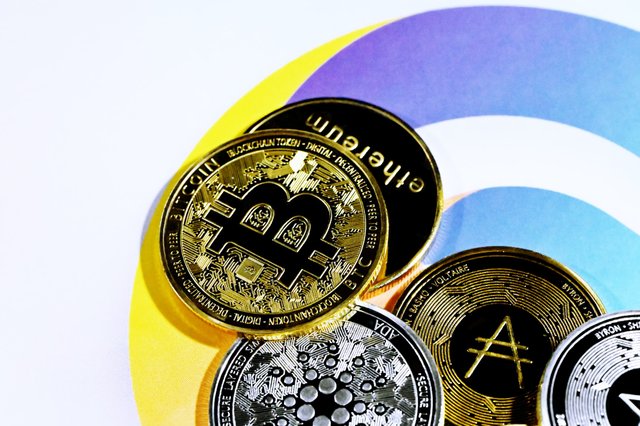dedicated to @upvu (big thanks for upvoting my article!)

What is Bitcoin?
Simply put, Bitcoin is a currency. Do you know what a Dollar or a Euro is? Good, because a Bitcoin is not much different in principle: you exchange Bitcoins with others in return for goods and services. You can also trade it and speculate on its value just as currency traders do with other currencies.
At this point, you may be wondering how much a Bitcoin is worth. Well, the answer is it’s worth however much someone is willing to pay for it. At the time of this writing, a single Bitcoin is worth around $41,713, but this value is constantly changing. It may seem odd that there’s no “inherent” value to Bitcoin, but remember that most “real” currencies also don’t have an inherent value. For example, how much is a U.S. Dollar worth? At the time of this writing, someone in France would say it’s worth about 0.88€ in Euros.
Indeed, this is the very idea behind fiat currencies, such as the U.S. Dollar. Their value is a function of people’s trust in the currency rather than some inherent value. Since the 1970’s the U.S. Dollar has not been tied to the price of gold.
Bitcoins do not have a physical form. They are purely digital currencies that are traded online.
What benefits does Bitcoin offer?
In order to understand the benefits of Bitcoin, we need to first think about currencies in general. Bitcoin or otherwise, a currency must have several qualities. Among these qualities are the following two:
- Currencies must have a limited supply
- Currencies must not be easy to counterfeit
If condition 1 isn’t met, a currency will have no value. If condition 2 isn’t met, then anyone can make fake copies and spend more than they have.
In the history of humanity, gold is arguably the most well-known currency. Gold meets both of these conditions extraordinarily well. Gold certainly has a limited supply — by some accounts, the world supply of gold could fit into a 20 square meter cube. Moreover, gold is nearly impossible to counterfeit since it is an element and it is difficult to create a convincing substitute.
Similarly, the U.S. dollar shares these characteristics. The U.S. government controls the supply of dollars and takes measures to ensure it is exceedingly difficult to create counterfeit copies of notes and coins.
In the modern era, however, it is not convenient to use commodities like gold for the purpose of making a purchase. It’s also not convenient to trade physical notes and coins to make purchases; after all, you wouldn’t want to exchange physical bills and coins each time you made an online purchase! So, these days we find ourselves turning to electronic methods such as credit cards, debit cards, and wire transfers.
Let’s think about what happens when we use a debit card at the store: the merchant swipes your card, which results in your bank being contacted to verify whether or not you are authorized to make the purchase. The bank is vouching for you, assuring the merchant that you have the funds needed to pay for the purchase. This step is needed to ensure you don’t double-spend your funds. In other words, if you only have $100 in your bank account, your bank should not allow you to spend $100 at one store followed by another $100 at a different store. That would mean you spent twice as much money as you have (i.e., you have double-spent your funds).

So what’s the problem with the current system?
-The problem is authority. Your debit card company is acting as the single authority that determines if you can spend your funds. Even in the case of physical bills, the government has the ability to control how and where funds move. This may not seem like a big deal, but consider some of the things you’re giving up under this arrangement:
-Limited mobility — companies, and governments can decide how and where you move your money.
-Transaction costs — wiring money between banks and between borders is often associated with expensive fees.
-Control of your funds — your bank accounts and assets can be frozen for various reasons, effectively making those funds unavailable to you.
Reversibility of transactions — banks have the ability to reverse transactions once they are made.
Lack of anonymity — it’s nearly impossible to remit anything but the smallest transactions anonymously.
Unlike a government-issued currency or a credit card, Bitcoin has no central authority that controls transactions. Instead of relying on a single authority, Bitcoin democratizes the process by distributing the power across everyone, effectively preventing anyone organization from controlling the rules. It does this while ensuring funds cannot be double-spent. The ability to prevent double-spending without giving control to a single authority is the novel breakthrough introduced by Bitcoin.
Finally, Crypto for the win!